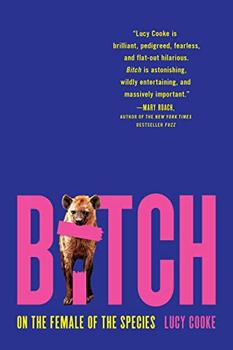Summary | Excerpt | Reviews | Beyond the book | Read-Alikes | Genres & Themes | Author Bio

Animal Emotions and What They Tell Us About Ourselves
by Frans de WaalWhen writing about animals, many authors default to arguing that they are just like us, or that we are just like them. In Mama's Last Hug, acclaimed primatologist Frans de Waal finds a more neutral approach that explores traits present in all primates, never positing one as superior to the other. He draws evidence from scientific texts and his own innumerable hours observing chimpanzees, proving his credentials as someone who has both researched and directly engaged. This combination allows him to be both academic and anecdotal while also being frank when he disagrees with other researchers. Additionally, he applies his knowledge to contemporary culture, placing phenomena like Donald Trump's aggressive body language in presidential debates and Vladimir Putin's intimidation tactics into the context of typical primate behavior.
One of de Waal's most enthralling discussions centers around the power structure within chimpanzee communities, and the role of the alpha male in particular. De Waal shares the story of Ntologi, a Tanzanian ape who was the alpha in his group, and who consequently controlled the distribution of meat after a kill, even if he hadn't participated in the hunt. Eventually, the other chimps resented his authority and forcibly expelled him from the community. He limped off on his own, returning occasionally with feigned vigor, only to be denied reentry. Finally, he was permitted back with a much lower social status, before eventually being killed by a coalition of others.
In a heartbreaking story, de Waal describes sewing hundreds of stitches on a beloved chimp named Luis at Burgers Zoo after a vicious power struggle. He pointedly refers to primates killing other primates as murder, pivoting the way many of us think of animal-on-animal violence. The author's research currently focuses on ideas of fairness and conflict resolution, and he details experiments done pertaining to related behaviors, using language accessible to a general audience. These studies include seeing how one chimp reacts when another chimp receives a different reward for the same task, as well as observing sharing behaviors.
Describing his experiences, de Waal must overcome major hurdles from history: many scientists before him have refused to even use the term "emotions" when describing non-human animals. De Waal details the work of neuroscientist Joseph LeDoux, who insisted on using the term "survival circuits" instead of "fear" in his research on rats. But how can we talk about chimpanzee behavior without using words for emotions? Mother chimps sometimes keep the bodies of their deceased offspring close until they deteriorate, an obvious demonstration of grief. Chimps form bonds with scientists and caregivers—the author tells stories of chimps hugging researchers before being released from captivity, as well as his own experiences with the titular Mama who'd smile when she saw him (the video of the emotional goodbye between Mama and her caretaker Jan van Hooff when she was on her death bed went viral in 2016). And the rage with which chimps attack one another during power struggles cannot be merely mechanical. When we deny animals all of the words for human emotions, we demean them and limit our ability to understand them—and ourselves. De Waal's approach to discussing emotions in animals, including humans, is refreshing. He claims that emotions are like organs because we all share them and they serve valuable functions.
One of the most enjoyable things about Mama's Last Hug is the holistic approach the author takes. Too often, writing about animals either valorizes or demonizes—de Waal's example of the former is the way bonobos, who often live in matriarchal communities, have been celebrated as peaceful feminist symbols—but such polarizing never adequately addresses any animal's behavior. That's especially true when we don't permit animals a range of emotions, de Waal claims. Because he draws from a number of resources, takes readers through his thought process, and speaks frankly when he disagrees with an idea, it's easy to trust him, whether he's writing about distribution of chimp rewards or power structures in humans. He selects incisive examples of the latter, both in daily life and in international politics.
We can never completely understand chimpanzees, but we can also never really understand one another. However, by focusing on the traits we share and telling captivating stories, Frans de Waal gets us closer to knowing each other, and our fellow primate species, a little bit better.
![]() This review was originally published in The BookBrowse Review in May 2019, and has been updated for the
March 2020 edition.
Click here to go to this issue.
This review was originally published in The BookBrowse Review in May 2019, and has been updated for the
March 2020 edition.
Click here to go to this issue.

If you liked Mama's Last Hug, try these:

by Lucy Cooke
Published 2023
A fierce, funny, and revolutionary look at the queens of the animal kingdom.

by Michael E. McCullough
Published 2020
A sweeping psychological history of human goodness -- from the foundations of evolution to the modern political and social challenges humanity is now facing.
I always find it more difficult to say the things I mean than the things I don't.
Click Here to find out who said this, as well as discovering other famous literary quotes!
Your guide toexceptional books
BookBrowse seeks out and recommends the best in contemporary fiction and nonfiction—books that not only engage and entertain but also deepen our understanding of ourselves and the world around us.